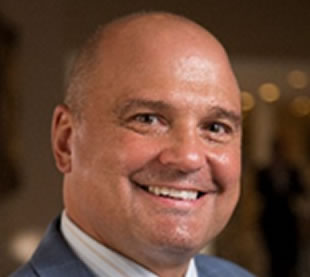
Financial Tips For Parents With Students Heading To College
To paraphrase Jim Morrison, summer’s almost gone. While it was hopefully fun filled and full of great memories, for many young people this summer was also a chance to earn a few dollars before heading back to college. During the summer, the labor force participation (LFP) rate among youth aged 16 to 24 generally increases. In 2016, the expected LFP rate is 60%, which is in line with the prior year level as reported by the Bureau of Labor Statistics http://www.bls.gov/news.release/youth.nr0.htm.
If your child had the drive to get a summer job and earn some income, he or she is already demonstrating some financial savvy. Starting smart money habits as early in life as possible can make a big difference over the long run. So, here are three important tips to help your kids as they begin their financial journey.
- Use earned income to fund a Roth IRA—even if you have to write the check.
Roth IRA’s are one of the best tools available for young people to invest and grow money on a tax-free basis. If your child has earned income (versus unearned income such as money you gift them), then they are eligible to open a Roth IRA. Even if your child has earmarked his or her earnings to cover some expenses (e.g., cost of books, food, or housing), you can still fund their Roth IRA in an amount up to their earned income.
Starting early can make a big difference. To get the maximum compounding interest benefit over time, take advantage of a ROTH IRA as early as possible. And, if your son or daughter has a promising career ahead of them, it may not be long until the benefits of a Roth IRA are no longer available (due to reaching the IRS earned income limits for eligibility).
While the maximum annual contribution for a Roth IRA in 2016 is $5,500, let’s consider a more modest example. If you invest $4,000 into a Roth IRA, and it grows for 40 years at a compound rate of 7%, it will grow to about $60,000! If your family’s situation can allow for this generosity, it might be one of the best steps you can take to help your child financially.
- Have your child open a credit card—but have the bill sent to your house.
Many experts warn of the dangers of credit cards, and there are good reasons for that. But we also need to remember that most college students are adults who will be managing their own affairs in a few years. I find that encouraging prudent use of debt (e.g., a credit card) can help young people manage their daily cash flow expenditures while teaching them the importance of disciplined debt management. At the same time, we don’t want our children running up enormous debt. You can help them by monitoring their credit card usage. Start with a low-limit card that can also earn them reward points and be sure to pay it off in full to avoid those high interest charges.
Having your child work with you to create their own cash-flow worksheet can be empowering for your child in that it gives them a framework and shines a light on daily decisions they will confront. But don’t call it a “budget;” for obvious reasons, “budget” can sound limiting, while “cash-flow worksheet” sounds more flexible and helpful.
Start by writing down whatever monthly income your child will earn or receive from all sources (earned income, parental gifts, etc.). Then list all monthly expenses. Subtract the monthly expenses from income to determine if there is a monthly surplus or deficit. Stress the importance of managing expenses to avoid accumulating debt. To complete your worksheet, you can use a notebook or any basic Excel sheet. If it’s easier for your Millennial, use an online tool such as the ones available from Quicken or Mint. Whatever method you use, it’s important is to track monthly inflows and expenditures to avoid accumulating debt.
Of course there are other steps you can take to prepare your child for a sound financial life, but these take into account three main areas: saving, debt management, and cash-flow management.
Mark Avallone, MBA, CFP®, CRPS®. www.PotomacWealth.com
Securities and Investment Advisory Services offered through H.Beck, Inc., Member FINRA/SIPC. 6600 Rockledge Drive, 6th Floor, Bethesda, MD 20817 301.468.0100. Potomac Wealth Advisors, LLC is not affiliated with H.Beck, Inc.
This material represents an assessment of the market environment at a specific point in time and is not intended to be a forecast of future events, or a guarantee of future results. This information should not be relied upon by the reader as research or investment advice regarding any funds or stocks in particular, nor should it be construed as a recommendation to purchase or sell a security. Past performance is no guarantee of future results. Investments will fluctuate and when redeemed may be worth more or less than when originally invested. Diversification and asset allocation do not guarantee against loss. They are methods used to manage risk.
* Opinions expressed are subject to change without notice and are not intended as investment advice or to predict future performance.
*The economic forecasts set forth in the presentation may not develop as predicted and there can be no guarantee that strategies promoted will be successful.
* Consult your financial professional before making any investment decision.



Engage us on Facebook
Follow us on Twitter
Tweets by @mymcmedia